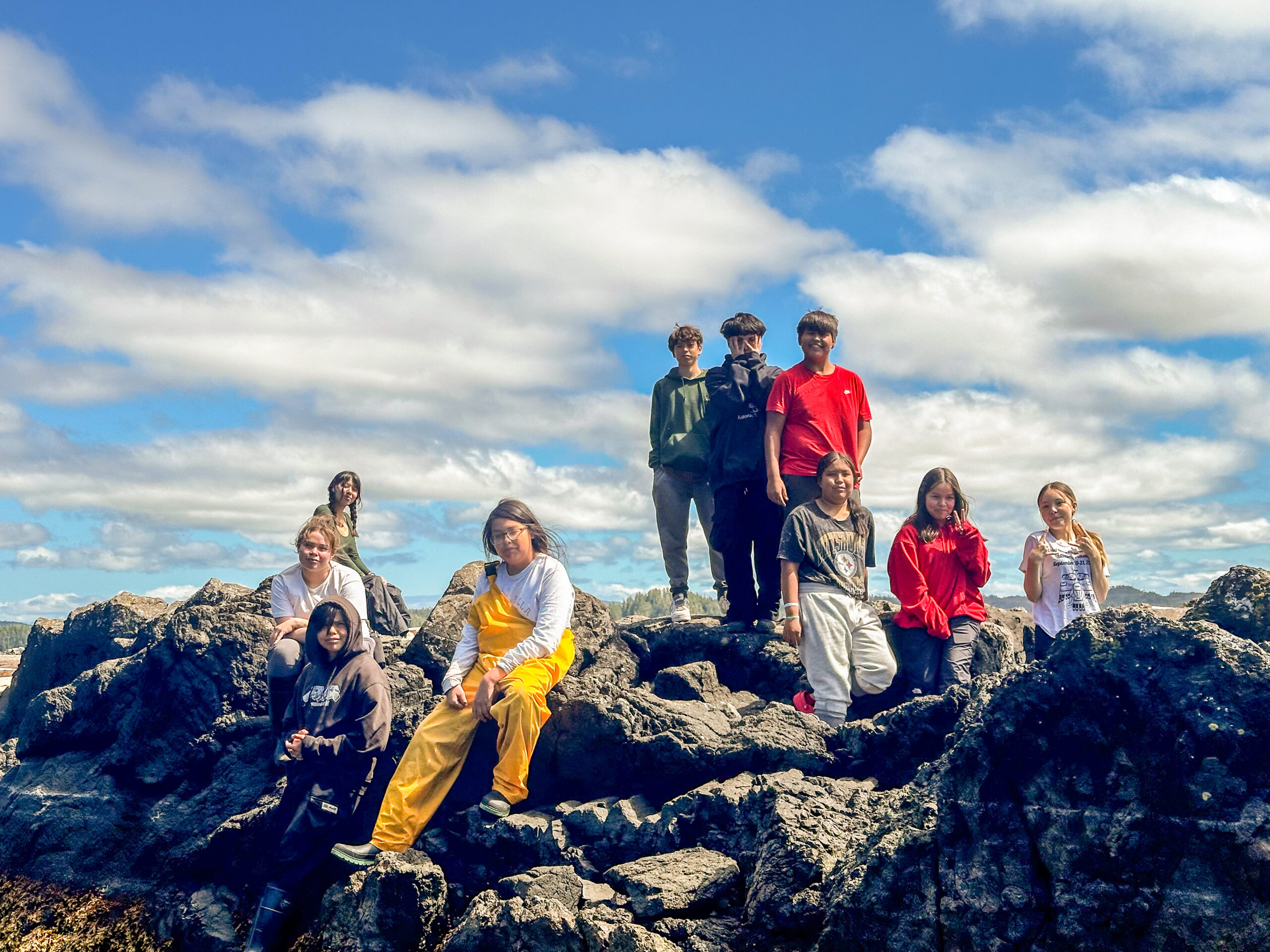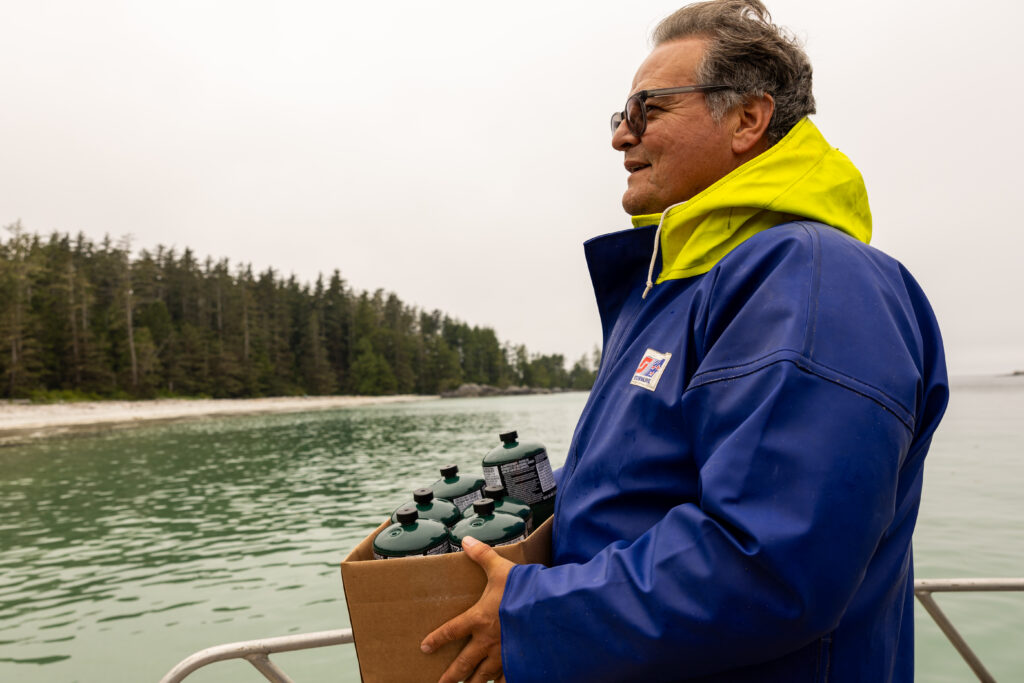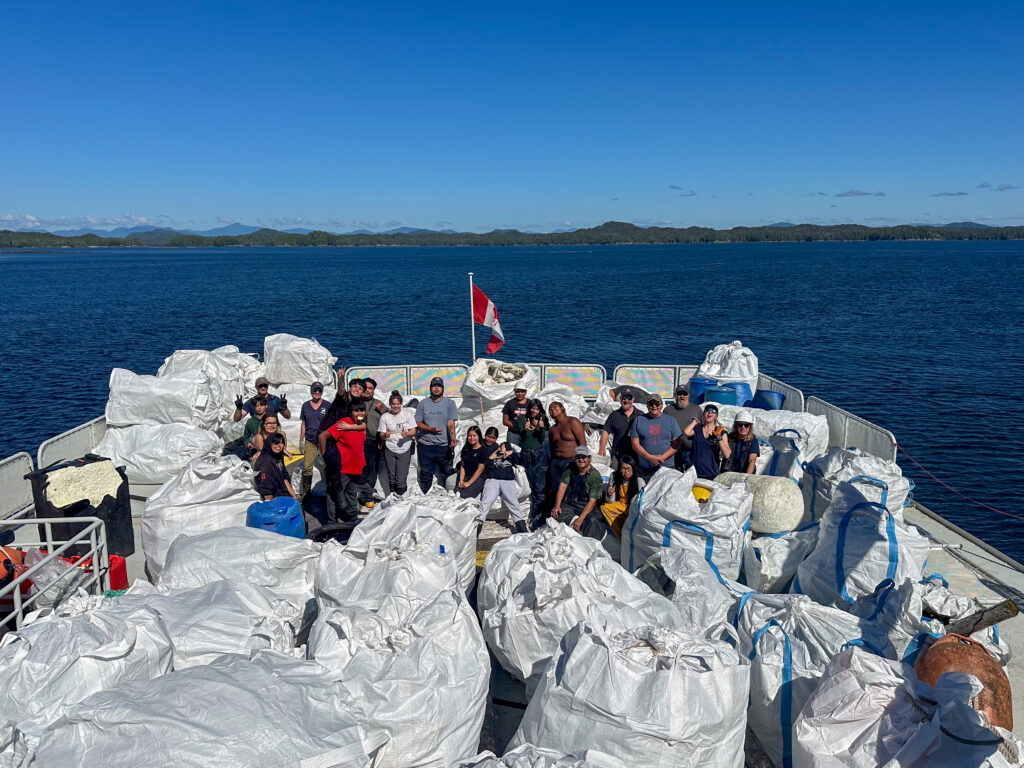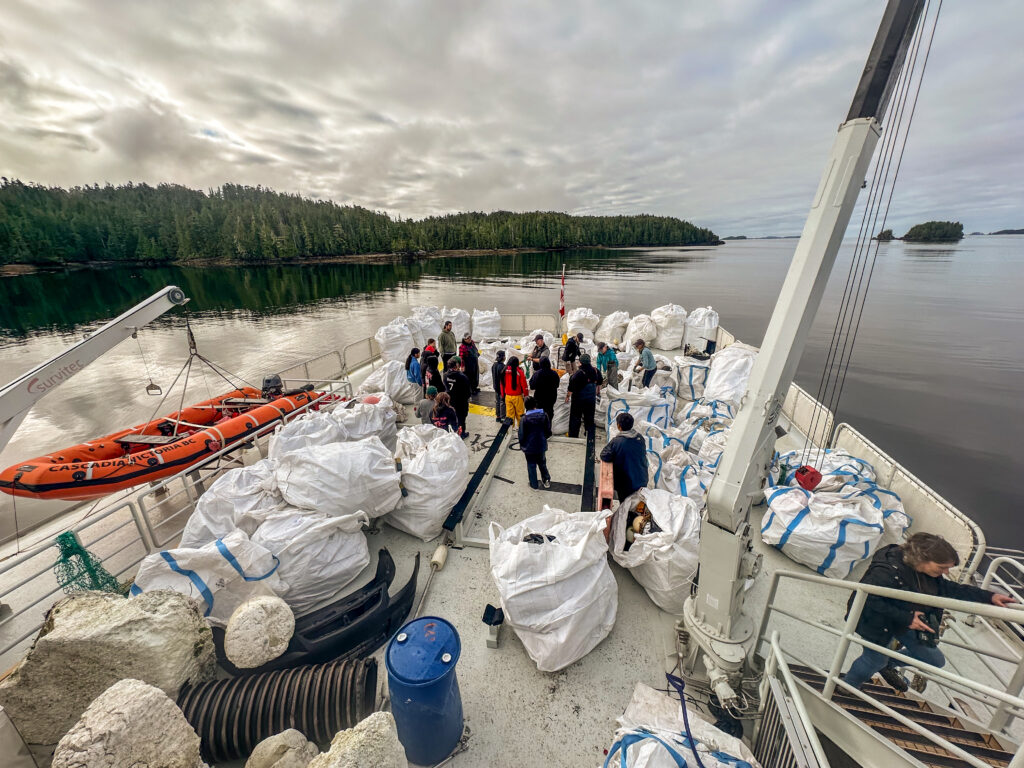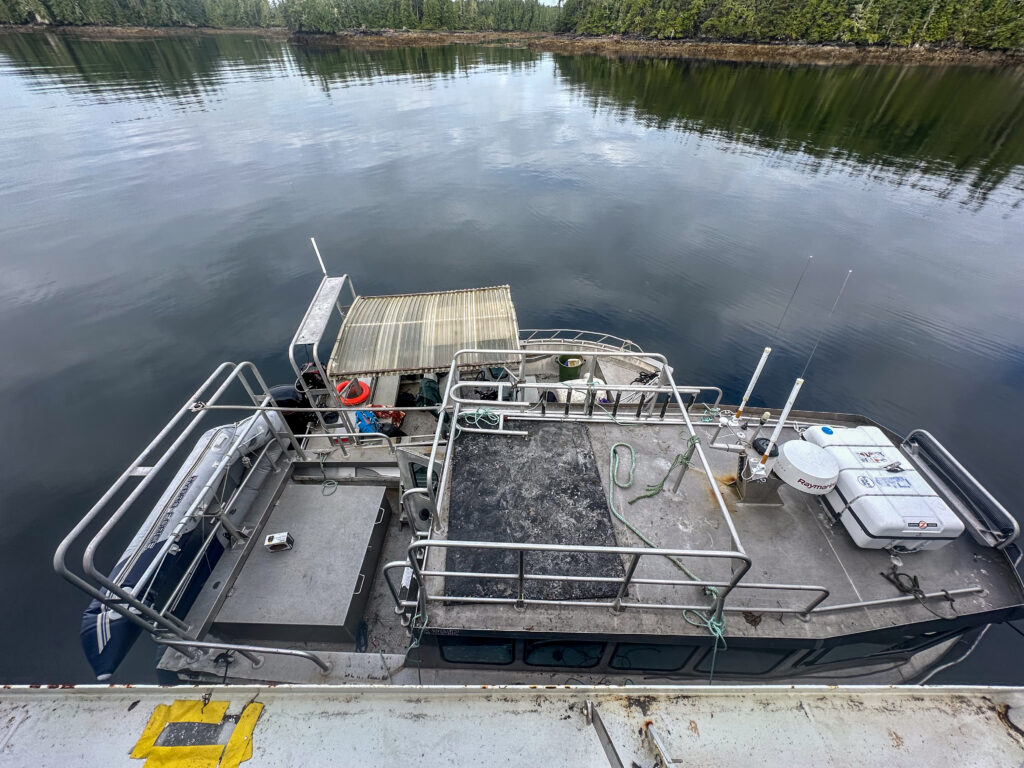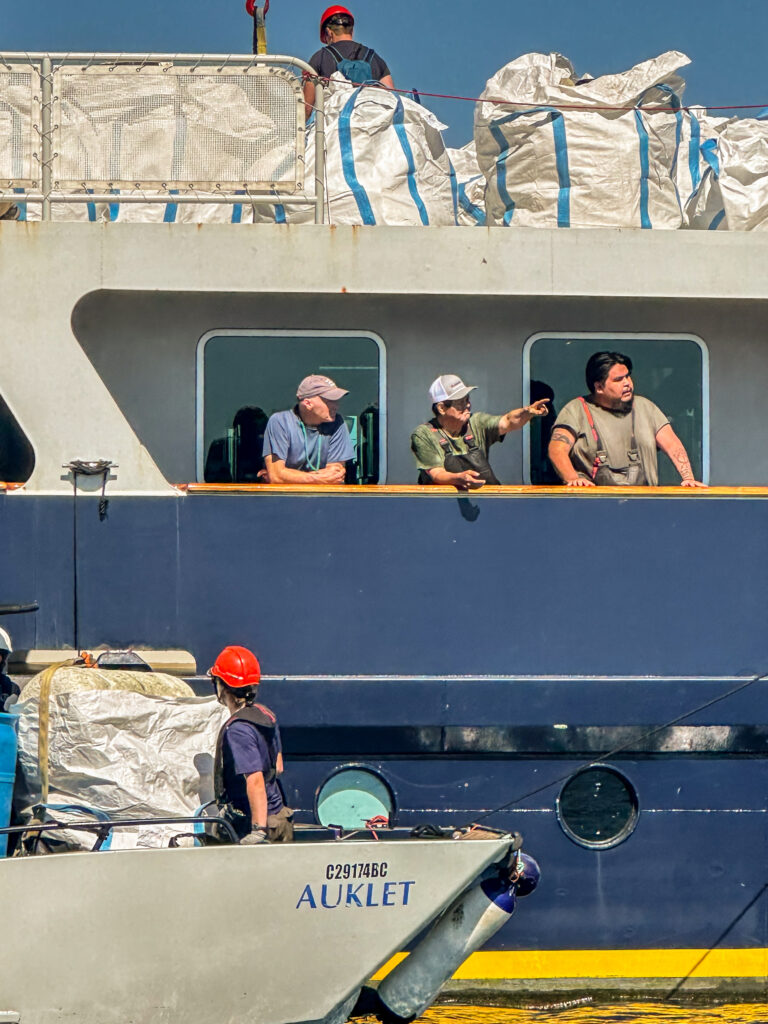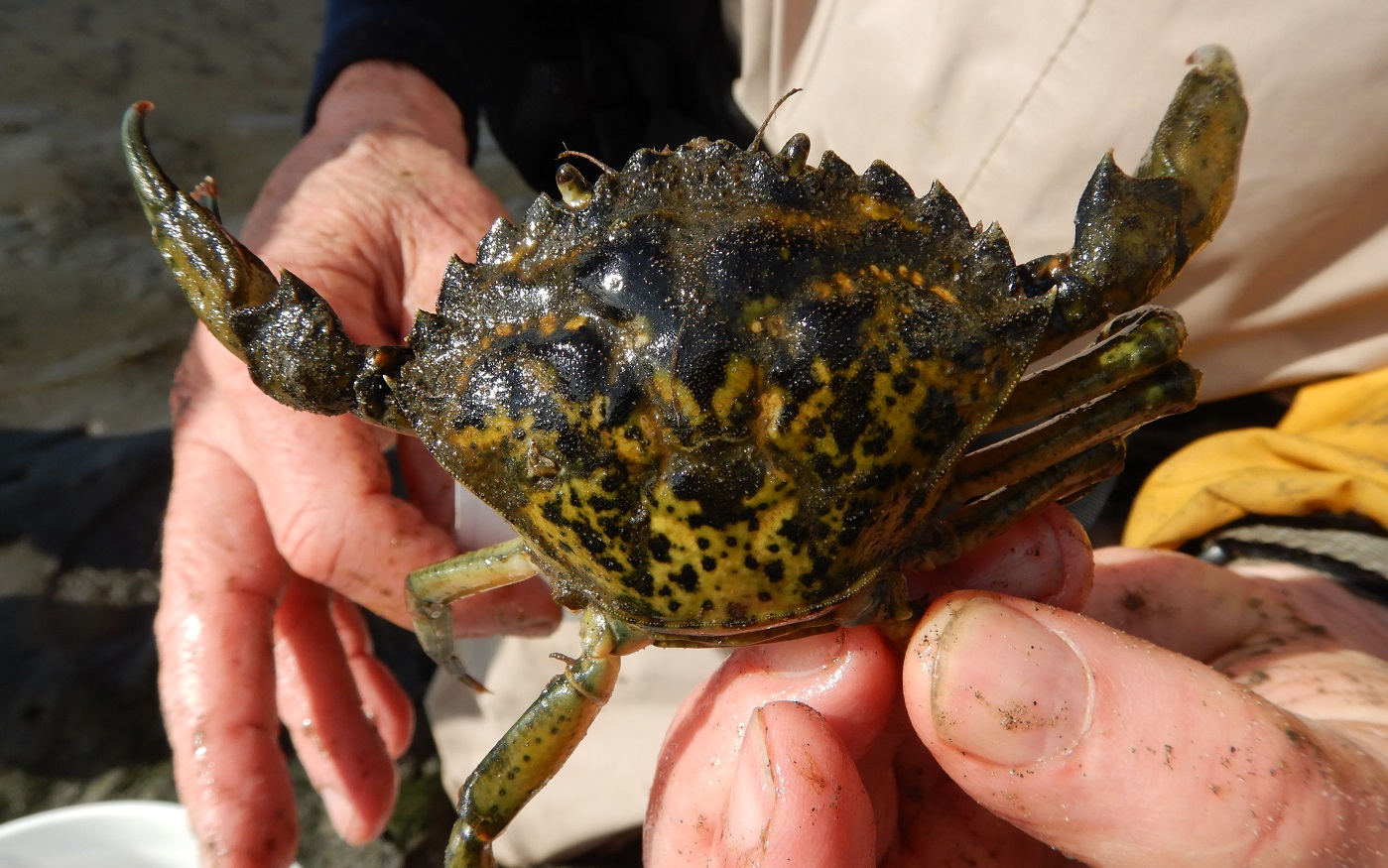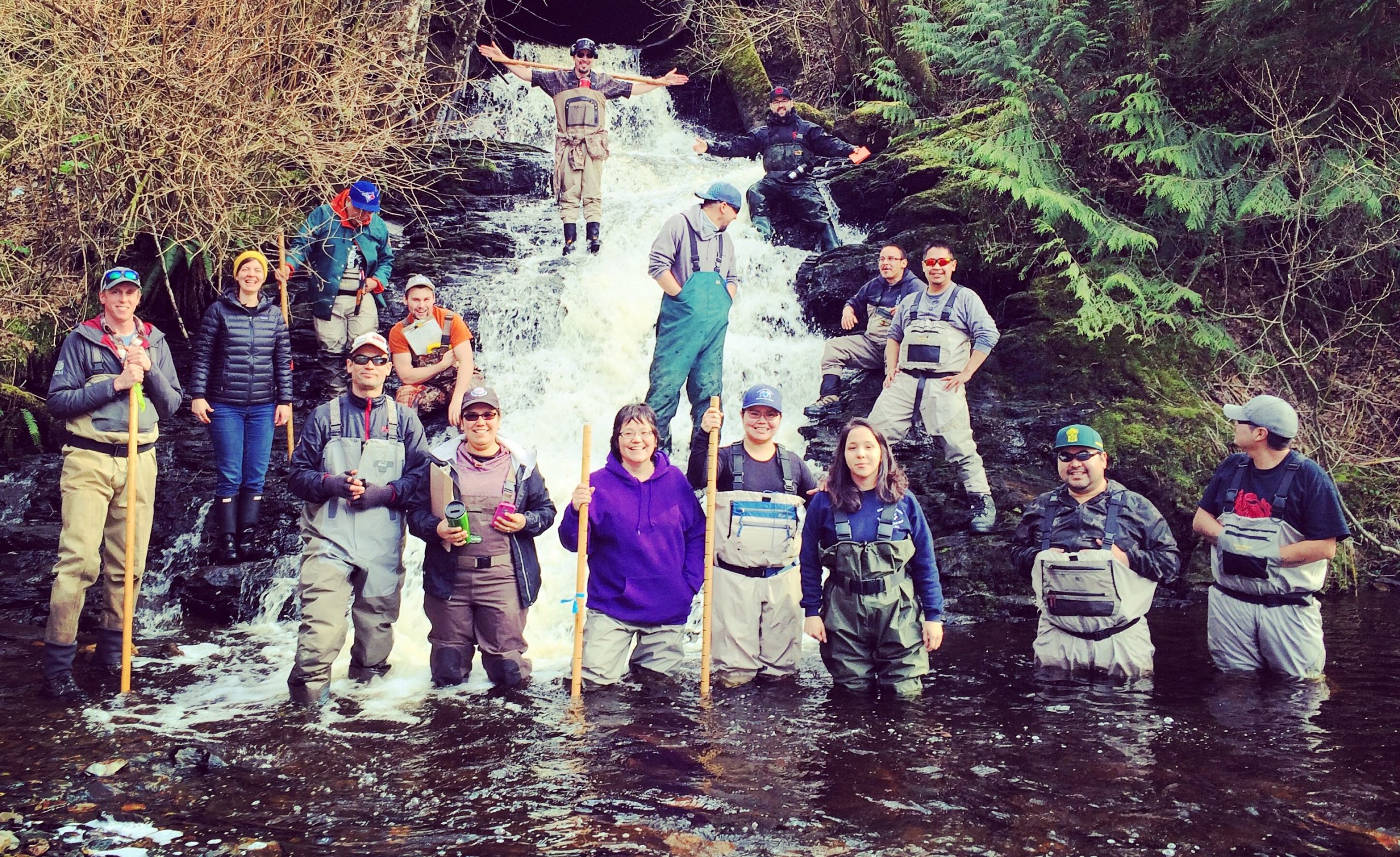Heiltsuk Hereditary Chief λáλíyasila Frank Brown, a mariner all his life, says his people have lived and died on the water and always understood the ocean as a sacred and vulnerable place.
“The ocean is a sacred place between the land and the sky, and if we hold it as sacred, we will revere, honour and respect it,” he says, driving a boat to Yáláƛí (Goose Island), dropping off propane tanks for a group of kayakers camped out in the territory.
The ocean covers 70 percent of the planet, it stabilizes our atmosphere, the air we breathe, it’s the biggest carbon sink on the globe. Our people have always known and always said — ‘everything is connected’ — and it’s not just a philosophical notion — it’s based on a deep and profound understanding of the interconnectedness of life and our interdependency.”
Brown remembers the novel and exciting feeling of coming across glass balls floating in the water, having made the long journey from Japan where they once served as fishing floats. As the years passed, the odd glass ball was replaced by floating plastic, styrofoam and an alarming amount of marine polluting the waters his people have gotten sustenance from for over 500 generations. No one sees, knows and experiences the impacts of climate change and pollution more than those who spend their lives on their lands and waters.
“We live on the water. The water sustains us. We have an ancient maritime history and culture. Our people have been here since the last time the climate began to warm up… the difference is that now we’re dealing with man-made climate change and the residue of the western society’s marine debris that’s impacting us — it’s a terrible inheritance for the next generation.”
Brown is Senior Advisor to the Indigenous Leadership Initiative (ILI), a leader in the Pacific coast-wide ocean-going Indigenous canoe resurgence and the executive producer and co-curator of the Sacred Journey traveling exhibit. Him and his family run YuWala marine charters and tours throughout the coast.
“The ocean is a sacred place between the land and the sky, and if we hold it as sacred, we will revere, honour and respect it,” says λáλíyasila Frank Brown. Photo by Emilee Gilpin
Opportunity to Give Back
Brown took part in a recent two-day shoreline cleanup initiative in Heiltsuk territories, where youth aged 12 to 15 and community members teamed up with partner organizations to remove up to 5,000 pounds of marine debris — fishing gear, nets, rope, polystyrene floats, plastic bottles, and more from their beaches. Brown, founder of the Yuwala Marine Charters, and his family transported the youth-led delegation to Striker Bay, Thompson Bay, and other beaches throughout their territories.
The debris they found and retrieved, if left, would pose a significant threat to the North Pacific Coast’s delicate ecosystem, potentially entangling wildlife or breaking down into microplastics, where it can no longer be separated and is absorbed into everything around. The Heiltsuk shoreline clean-up initiative was a part of a larger ongoing project started by Small Ship Tourism Operators (SSTOA) members Maple Leaf Adventures and Bluewater Adventures, supported by the province through the Clean Coast, Clean Waters Initiative Fund.
Photos provided by Maple Leaf Adventures and Frank Brown
William Housty, Associate Director of the Heiltsuk Integrated Resource Management Department (HIRMD), says while the majority of the debris in their waters doesn’t originate from his village, the project was an opportunity to collaborate on shared values. “This project is important because it connects Heiltsuk people, in particular youth, back to the land and water they descend from and gives them an opportunity to remove debris to help bring the land and water back to its original state,” he says.
In doing this work, we’re exemplifying Heiltsuk values of respect and reciprocity — for the land and water that give back to us in so many ways. Learning that if there was respect for the land and water, there would be no debris to clean up… This also teaches them to take care of what belongs to them.”
Heiltsuk Social Development Manager Mavis Windsor, says the youth who participated in the cleanup will understand the significance of the work in years to come. “While our young Heiltsuk members may not view what they participated in as an environmental issue, it’s something they will remember when they’re older and become more aware of issues, such as climate change, pollution, environmental degradation that affects the overall pristine state of our traditional territories,” she says.
“It’s important that we continue to raise awareness on environmental issues, especially with how human actions impact our beautiful territories.”
Brown says it’s important, particularly for young people and children to be involved in the work and see the impacts for themselves. “We know the ocean is our life-giver, it’s what sustains,” he says. “We’ve taken from the ocean and this is an opportunity for us to give back.”
The Ocean Isn’t Limitless
Maple Leaf Adventures and Bluewater Adventures, members of the SSTOA and Wilderness Association, provide small-scale expedition cruises across the coast. They started integrating marine debris removal into their tourism work during the COVID-19 pandemic, and have continued to show how coastal stewardship and protection can become “just another part of doing business in Canada,” says Kevin Smith, CEO of Maple Leaf Adventures. The larger Marine Debris Removal Initiative began in 2020, funded by the provincial Ministry of Environment and Climate Change Strategy.
Since 2020, the Clean Coast, Clean Waters initiative has removed 215 derelict vessels and cleaned up more than 2,100 tonnes of marine debris from more than 6,400 kilometres of shoreline. Brown says while the amount of plastics and harmful materials removed has been significant, it is yet a drop in the ocean.
“It’s important to realize the ocean isn’t limitless like humans once thought… that it would keep producing and producing for us,” he says.
The resources of the ocean are finite and we need to take care of it. We’re not human beings, we’re water beings, we come from our mothers, from water, we live on the water, it sustains us.”
It’s going to take everyone, Brown stresses, the private sector, First Nations governments, other governments, to start prioritizing the health of the ocean and cleaning up the mess that’s been made.
“We all have to have a livelihood, sustain ourselves, but we can do it in a modern way. It will take us all working together to clean up natural places, so it will be there for the inheritance of all humanity. I appreciate the people making the effort to make that possible, to bring our youth out on the water.”
